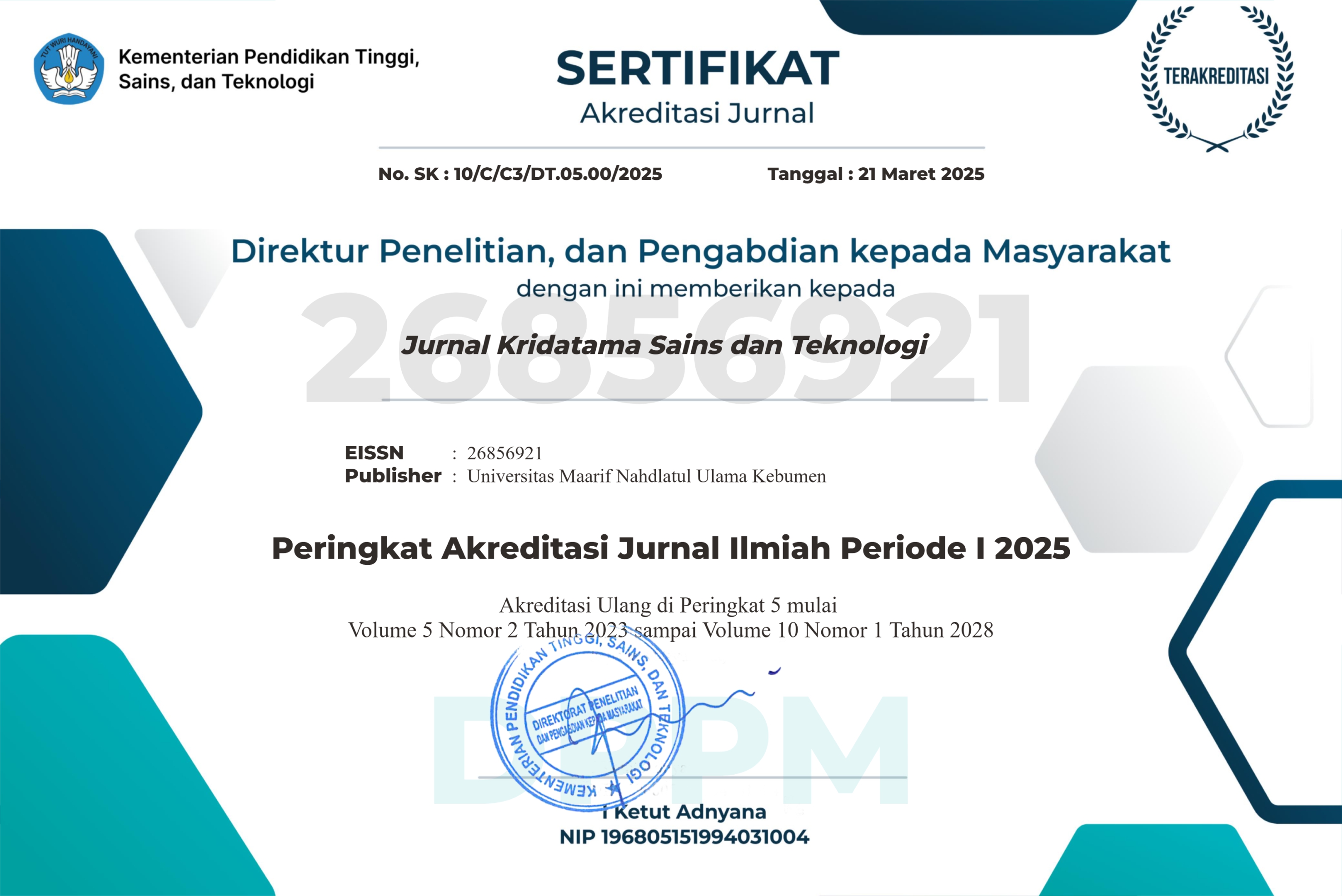Implementasi Sistem Informasi Data Kependudukan Desa Selokerto Berbasis Website dengan Metode Waterfall
DOI:
https://doi.org/10.53863/kst.v6i01.1058Keywords:
information system, website, waterfall, village mail administrationAbstract
The use of technology and information is growing rapidly. Many institutions including government agencies have implemented website-based information systems in their services. With this information system, services become faster and more precise. The Selokerto Village Government is one of the villages in Sempor Sub-district, Kebumen Regency, which has implemented a website-based information system to serve peoples need such as requests for letters through the village government administration. However, sometimes the existing system experiences interruptions that cannot be predicted for how long. Data that has been inputted cannot be accessed and cannot print the required letter. The Selokerto Village Government must wait for repairs from the Kebumen Regency Government operator. This makes the Selokerto Village Government unable to provide maximum service. Therefore, another information system is needed with a simple interface design, easy for users to understand, and can accommodate the needs of peoples. The purpose of this research is to implement a website-based Selokerto Village administration information system. The development method used in this research is the waterfall method which consists of five development stages, namely: (1) Analysis, (2) Design, (3) Implementation, (4) Testing, and (5) Maintenance. After the information system is completed, blackbox testing and testing to prospective users of the system are carried out to see the feasibility of the system. This research produces a website-based Selokerto Village administration information system that can be used by Selokerto Village officials to serve the needs of peoples, especially for correspondence purposes. In addition, based on the results of blackbox testing and testing by prospective users, it shows that the system has run well and as expected. Thus it can be said that this system is feasible to implement.
Keywords: information system, website, waterfall, village mail administration
References
Fatimah, D. D. S., Paryatin, Y., & Nurhasanah, N. (2022). Rancang Bangun Sistem Informasi Pelayanan Administrasi Surat Desa Berbasis Web Menggunakan Metode Unified Approach. Jurnal Algoritma, 18(2), 376–384. https://doi.org/10.33364/algoritma/v.18-2.842
Fatimah, & Samsudin. (2019). Perancangan Sistem Informasi E-Jurnal Pada Prodi Sistem Informasi Diuniversitas Islam Indragiri. Jurnal Perangkat Lunak, 1(1), 33–49. https://doi.org/10.32520/jupel.v1i1.782
Hanifah, U., Alit, R., dan Sugiarto. (2016). Penggunaan metode black box pada pengujian sistem informasi surat keluar masuk . Jurnal Teknologi Informasi dan Komunikasi. 11(2), 33-40.
Mala, F. Y. (2019). Aplikasi sistem penjualan online industri pisau berbasis e-commerce pada CV. Hikmah Berkah Utama Erwan. Repository.Uinjkt.Ac.Id. http://repository.uinjkt.ac.id/dspace/handle/123456789/47854
Mogana, A. M. (2017). Metode Penelitian Dan Pengembangan. Kerangka Konsep Penelitian, 53(9), 1–15.
Pressman, R. (2015). Rekayasa Perangkat Lunak. Yogyakarta: Andi.
Romindo. (2018). Penerapan metode waterfall dalam penerapan aplikasi mobil dan persediaan barang pada bengkel turbo otomotif. Riset dan e-jurnal manajemen informatika komputer, 3(1), 40-45.
Rosmiati. (2021). Analisis dan pengujian sistem menggunakan black box testing equivalence partitioning (studi kasus: sistem informasi inventarisasi barang berbabis web pada madrasah tsanawiyah negeri 2 palangka raya). Jurnal Sains Komputer dan Teknologi Informasi, 3(2), 56–63.
Wijaya, Y. D., & Astuti, M. W. (2021). Pengujian Blackbox Sistem Informasi Penilaian Kinerja Karyawan Pt Inka (Persero) Berbasis Equivalence Partitions. Jurnal Digital Teknologi Informasi, 4(1), 22. https://doi.org/10.32502/digital.v4i1.3163
Downloads
Published
How to Cite
Issue
Section
License
Copyright (c) 2024 Endang Wahyuningsih,Abdullah Jabir Najib

This work is licensed under a Creative Commons Attribution-ShareAlike 4.0 International License.
Authors retain copyright and grant the journal right of first publication with the work simultaneously licensed under a Creative Commons Attribution-ShareAlike 4.0 International License that allows others to share the work with an acknowledgment of the work’s authorship and initial publication in this journal

















